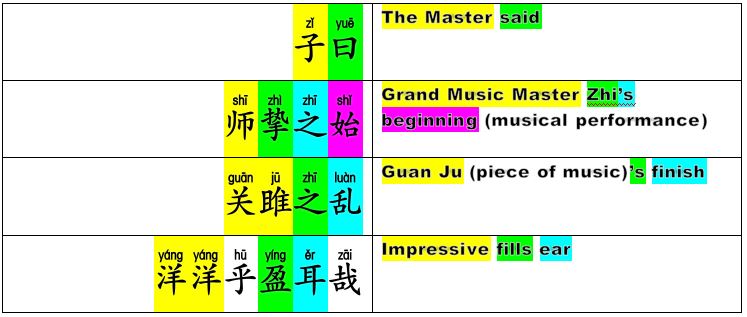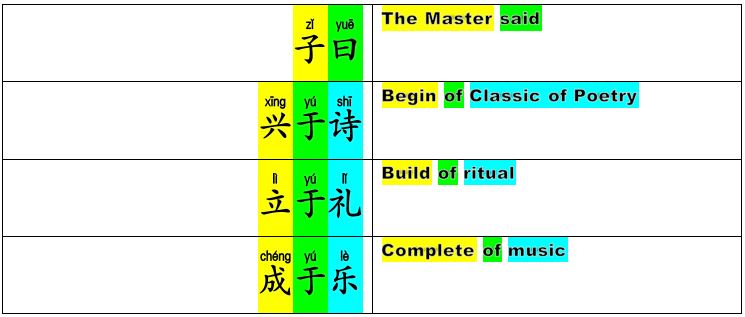Analects 11.1
Original Text:
子曰先进于礼乐野人也后进于礼乐君子也如用之则吾从先进
Translation:

Other Translations:
The Master said, “Those of my disciples who were first to enter into study of ritual and music with me were simple rustics, whereas those who entered later were aristocrats. If I had to employ them [in public office], I would prefer the first.”
Confucius, & Slingerland, E. (2003). Analects: With selections from traditional commentaries. Hackett Publishing.
The Master said, Older people, when it comes to rites and music, are mere rustics. Younger people, in matters of rites and music, are true gentlemen. But when it comes to usage, I follow the older people.
Confucius, & Watson, B. (2007). The Analects of Confucius. Columbia University Press.







